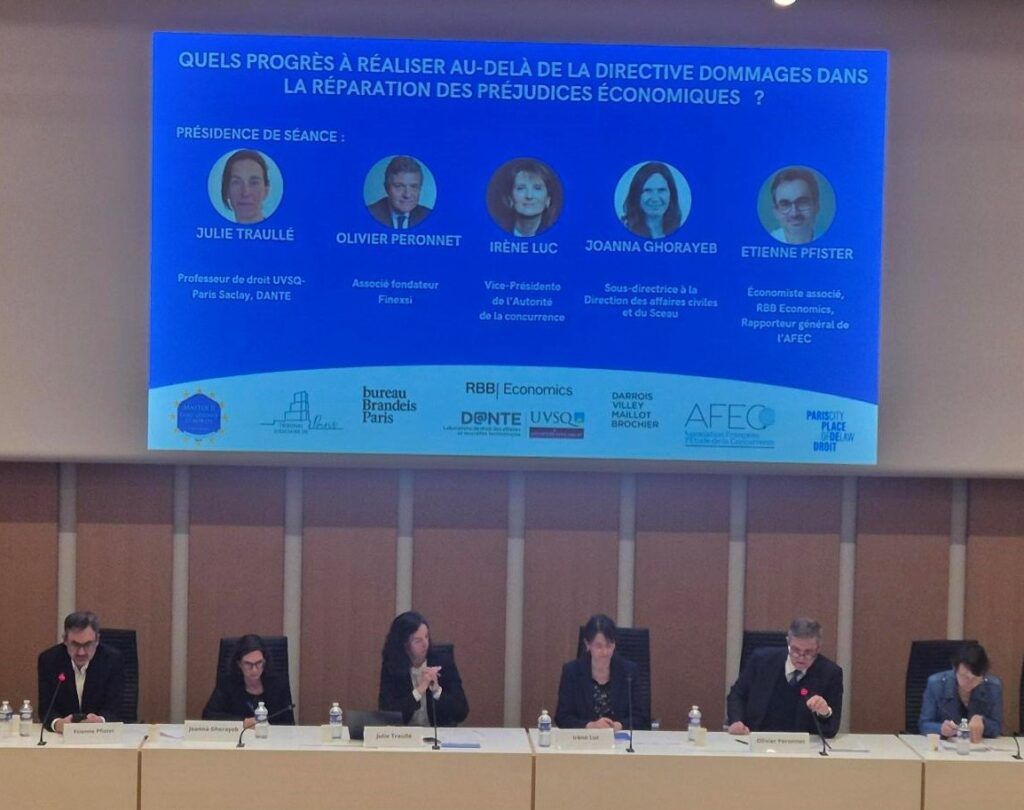Olivier Péronnet participated in early December in a conference titled: “What Remedies for Competitive and Economic Damages, Ten Years After the Damages Directive and Beyond?”
This conference was organized by the Master’s Program in Competition and Contract Law (M2CC) and the Business Law and New Technologies Laboratory (D@NTE) – UVSQ – Paris Saclay, in partnership with Paris Place de Droit and the French Association for Competition Studies (AFEC). It was held at the Paris Judicial Court.
Olivier Péronnet spoke during a roundtable chaired by Julie Traullé, a member of the DANTE laboratory. The discussion also included Joanna Ghorayeb, Deputy Director at the Directorate of Civil Affairs and the Seal, Irène Luc, Vice-President of the Competition Authority and Etienne Pfister, General Rapporteur of AFEC. Together, they discussed the progress needed to improve the compensation for economic damages.
On this occasion, Olivier Péronnet highlighted the importance of judicial expertise and private expertise as complementary approaches. Judicial expertise ensures equality of arms, adherence to ethical standards, and strict compliance with adversarial principles in service of the judge, while private expertise contributes to the adversarial process and enriches discussions.
To improve compensation for economic damages, Olivier Péronnet suggested encouraging civil courts to use Article 263 of the French Code of Civil Procedure (CPC), which provides for findings, consultations, or, failing that, expert assessments. More broadly, he emphasized the central role of judges in advancing expert operations (Articles 266, 273, 282, 283).
He also proposed that, in compliance with the law, a dialogue with the judge should occur when defining the scope of the mission to specify needs and avoid overly broad or prolonged assignments.










